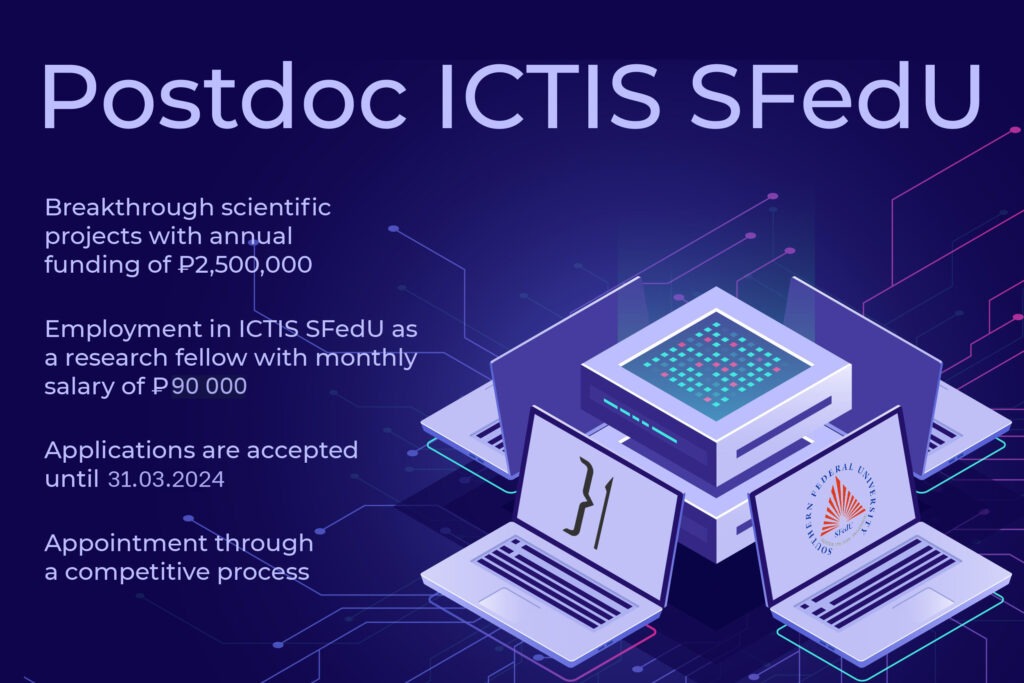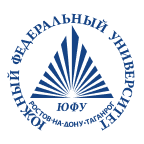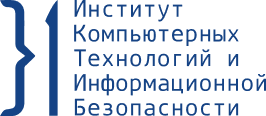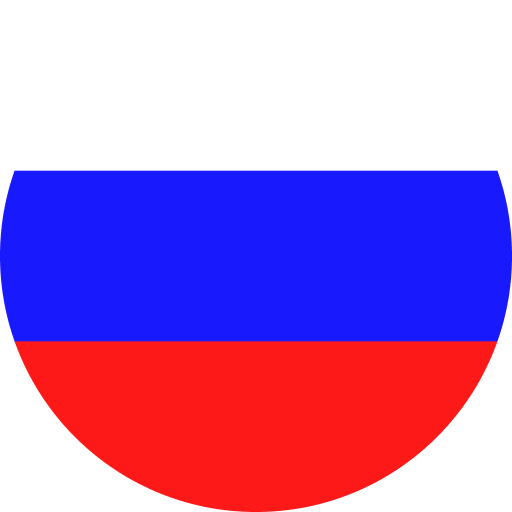Postdoctoral Fellowship Program 2024

The postdoc program of the Institute of Computer Technology and Information Security, Southern Federal University located in Taganrog, Russia is intended for citizens of Russia and foreign countries – PhDs / candidates of science who are fluent in English, with experience publishing research papers indexed in Scopus / WoS, who have not previously worked in Southern Federal University. The age limit for participants is 39 years.
The program is designed for 3 years with an extension every year. Projects are carried out under the supervision of a professor. From the first year of work, the postdoc has to lead the research team of the project made of postraduate Master and PhD students.
Applications for participation in the competition are accepted until March 31, 2024. The results of the competition will be announced by April 30, 2024.
To participate in the competition, select a project and fill out the application form.
Applicant requirements
- up to and including 39 years of age;
- academic degree of candidate of science (or successful defense of a candidate’s dissertation) or PhD or equivalent degree obtained at Russian or foreign University; priority is given to researchers who have received an academic degree within the last 3 years;
- fluency in English (at least Upper-Intermediate level);
- at least 3 research papers in the last 3 years in international peer-reviewed journals indexed in Scopus and / or Web of Science;
- absence of employment relations with SFedU over the past 5 years.
Working conditions
- employment in SFedU under a fixed-term employment contract as a research fellow of ICTIS with a monthly salary of ₽90,000;
- equipped workplace in ICTIS SFedU;
- covering registration fees and travel expenses for two conferences per year;
- payment for access to cloud services;
- payment of the cost of a single trip from the place of residence to Taganrog (bus or railway or air tickets in economy class) for postdocs living outside of Taganrog, Russia;
- opportunity to participate in other research projects and professional development programs of SFedU on a general basis.
Requirements for the performance
- Formation of a project research group made of SFedU students (at least two undergraduates and one post-graduate student) under the supervision of a postdoc, in the first year of activity.
- Publication activity of the supervisor and postdoc in collaboration with members of the project research group made of SFedU students.
- In the first year: at least two peer-reviewed publications (including one in a journal) indexed in Scopus and (or) Web of Science.
- In the second year: at least two peer-reviewed publications in journals (including one in a journal of the first or second quartile) indexed in Scopus and (or) Web of Science.
- In the third year: at least two peer-reviewed publications in journals of the first or second quartile. Filing an application for international or Russian patent is equivalent to a research paper indexed in Scopus or Web of Science.
- Postdoctoral supervision of Master’s Thesis – at least two per year.
- At least one application per year for a research grant with a funding volume of at least 1 million rubles.
- Oral presentations of scientific results at research conferences by the postdoc – at least two per year.
Feel free to ask question on postdoc program. Phone: +7(863) 218-40-00 ext. 30-010, Alexey Samoylov. Email: asamoylov@sfedu.ru
To participate in the competition, select a project and fill out the application form.
Open PostDoc Positions in 2024 Projects
Development and implementation of an intelligent system for processing and analyzing text in natural language
| Supervisor | Yury Kravchenko, Dr. Tech. Sci., Docent, Professor, Institute of Computer Technologies and Information Security. E-Mail: yakravchenko@sfedu.ru. Scopus profile |
| The goal and objectives of the project | The research is devoted to solving an important problem of artificial intelligence, which is the need to increase the efficiency of knowledge extraction processes (search for meaning) in natural language text processing and analysis systems. An effective solution to this problem is a fundamental stage in the creation of effective means of generative artificial intelligence. The main scientific idea of this study is the transition from the dominance of generative artificial intelligence systems based on tools that represent a "black box" to more reliable intelligent systems based on deterministic methods and algorithms for searching, acquiring and using knowledge, which allows to increase the accuracy of input data processing, minimize the response time of the system to a user request and to ensure the "transparency" of decision-making processes. |
| The goal and objectives of the project | Knowledge of the provisions of artificial intelligence theories, bioinspired optimization, algorithms, graphs, as well as methods of knowledge search and extraction, semantic and ontological modeling, Text Mining and Open Information Extraction technologies. Proficiency in using modern technical solutions to create intelligent systems for processing and analyzing text in natural language. Experience in designing information systems, possession of effective software creation tools. |
Development of methods and tools for training specialists in the field of artificial intelligence based on multimodal network communities using distributed ledger technologies
| Supervisor | Eduard Melnik, Dr. Tech. Sci., Professor, Institute of Computer Technologies and Information Security. E-Mail: evmelnik@sfedu.ru. Scopus profile |
| The goal and objectives of the project | The market for artificial intelligence (AI) products is developing very dynamically all over the world. For example, projects related to data markup and the formation of training samples are relevant today. For example, a query for the keyword data labeling gives more than 258,000,000 results, a query for the keyword data markup in the RSCI gives more than 12,000 results. Currently, a number of tasks in the field of artificial intelligence (and not only) can be solved with a high degree of automation, through the use of tools based on artificial intelligence methods, for example, in terms of data markup. This allows you to significantly reduce the cost of the project. However, such tools today allow us to solve problems corresponding to the level of a novice specialist, which actualizes the issue of training qualified expert specialists, because replacing entry-level specialists with AI systems does not ensure continuity in the training of specialists. This project is aimed at solving the socially significant task of distributed training of qualified specialists in the field of artificial intelligence. In this project, it is proposed to use a new approach based on multimodal network communities, including entry-level specialists (people), artificial intelligence systems and experts. As part of this approach, it is planned to attract volunteers (volunteers) as entry-level specialists, whose motivation is determined both by the scope of application of the results and by the desire to improve their own qualifications. The process of training qualified specialists is supposed to be based on methods of forming career trajectories and HR technologies for organizing collaboration and storing results. A feature of the approach will be the use of artificial intelligence tools not only to solve the problem in the field of AI, but also to solve the tasks of upgrading the skills of entry-level specialists to the level of experts in the field of artificial intelligence using the example of the task of data markup. |
| Requirements for an applicant | The ability to conduct a systematic analysis of the subject area. Knowledge of information mining methods (artificial neural networks, ontological models). Experience in developing distributed systems. Knowledge of consensus building methods. The ability to develop software models and modules and test their performance. |
Development of a quantum key distribution (QKD) system to exclude unauthorized access to television channels.
| Supervisor | Konstantin Rumyantsev, Dr. Tech. Sci., Professor, Deprtment Chair, Institute of Computer Technologies and Information Security. E-Mail: rumyancev@sfedu.ru. Scopus profile |
| The goal and objectives of the project | The project is aimed at implementing the idea of using the QKD protocols to restrict access to television channels. Any modern decoder uses a smart card (replaceable key), where the account number, channel encryption codes, payment data, etc. are stored. The decoder exchanges information with the card, transmitting special commands and receiving data. To restrict access to television channels, either a certain rearrangement of the blocks of the TV signal frame is used, or cutting the lines into two parts and rearranging these parts. The permutation scheme is transmitted as part of the service information of the TV signal in encrypted form. Decryption is performed by a smart card using a secret key in it, called an operational key. The operator periodically changes the operational key, transmitting it in encrypted form over the air as part of the service information. This scheme of automatic key renewal is used, for example, in the Eurocrypt system. In this case, the operational key is encrypted using a control key, which is also stored in the smart card on the subscriber's side. Note that by obtaining the control key in some way, an attacker can subsequently receive all new operating keys. However, to do this, he must either hack the smart card, which is a very difficult task, or intercept one or more encrypted operating keys and then carry out an attack on the control key. This task is also difficult, given the relatively high resistance of modern encryption algorithms. However, when using high computing power, it is solvable. The use of a quantum key distribution system will eliminate unauthorized access to television channels. The disadvantage of QKD systems is the limited distances over which transmission with an acceptable error rate is possible, as well as the low transmission speed. The cost of equipment is an obstacle to the use of QKD systems to restrict access to TV channels. So, since 2006, MagiQ has been offering a plug-&-play system that allows transmitting up to one hundred 256-bit keys per second over a distance of 100 km over the fiber optic network. These technical parameters are quite sufficient to update the operating keys in TV channel access restriction systems. However, the cost of the system for a couple of subscribers is about 50,000 USD. In addition, in order to use such a system, the subscriber must have a fiber optic cable, a computer to which the equipment for RC is connected, as well as an appropriate interface for transferring the received key to a smart card. It is possible to transfer the key using the QKD system and over the air, for example, from the satellite. However, such commercial systems do not yet exist. Note that the necessary equipment for this is also quite expensive. Thus, the subscriber needs to install a complex optical signal reception system, including a small telescope and highly sensitive single photon detectors. Therefore, research on the search for methods, algorithms, structures and technical solutions to improve the quantum key distribution system to exclude unauthorized access to television channels is an urgent scientific direction with a clearly expressed practical application for fiber-optic and satellite communication networks. |
| Requirements for an applicant | 1. Competencies. To use modern information and communication technologies, including specialized software for solving design and calculation tasks. To use modern information and communication technologies, including specialized software for solving design and calculation tasks. Develop and present presentation materials on the project. To organize the collection, processing, analysis and systematization of scientific and technical information, domestic and foreign experience on the problems of information security of telecommunication networks, the development of proposals on issues of integrated information security of telecommunication networks, the development of models of threats of unauthorized accessto telecommunication networks. Distribute tasks among R&D performers to create tools and systems for protecting means of communication of telecommunication networks from unauthorized access, secure telecommunication systems, control the timing and quality of their execution. Analysis of information security threats in telecommunication networks. Development of means and systems for protecting telecommunication networks from unauthorized access to them, secure telecommunication systems. Conducting research and development work in the field of development of means and systems for protecting means of communication of telecommunication networks from unauthorized access, creation of protected telecommunication systems. 2. Work experience. Design of optical communication systems, telecommunication systems. The topic of the dissertation should be related to the processing of optical signals or the protection of optical communication systems. Conducting patent research, checking the patent purity of technical solutions, equipment, and software adopted in the project. Assessment of the costs of creating (upgrading) an object, a communication system (telecommunication system) Development of a program and methodology for testing an object, a communication system (telecommunication system). 3. The necessary knowledge. Regulatory and technical documents regulating the design preparation, implementation and operation of communication systems (telecommunication systems), construction of communication facilities. Copyright legislation, methods of conducting patent research. Modern technical solutions for the creation of communication systems (telecommunication systems) and its components, the latest equipment and software. Prospects for the technical development of the communications and telecommunications industry. The main means and methods of ensuring information security, the principles of building tools and systems for protecting means of communication of telecommunication networks from unauthorized access, secure telecommunication systems. Analysis of information security threats in telecommunication networks. Development of means and systems for protecting telecommunication networks from unauthorized access to them, secure telecommunication systems. Conducting research and development work in the field of development of means and systems for protecting means of communication of telecommunication networks from unauthorized access, creation of secure telecommunication systems. 4. Confirmed personal participation in grants (RFBR, RSF, etc.) as a participant. 5. Confirmed personal participation in an international conference related to the research of optical communication systems, with a speech in English (certificate). 6. The presence of at least 5 publications in journals considered by the Higher Attestation Commission and reviewed in Scopus or WoS, including at least two publications in foreign journals. |
Synergetic approach to complex system control
| Supervisor | Gennady Veselov, Dr. Tech. Sci., Docent, Director, Institute of Computer Technologies and Information Security. E-Mail: gev@sfedu.ru. Scopus profile, Google Scholar profile |
| The goal and objectives of the project | The purpose of the study is to develop the theoretical foundations and methods of synergetic control of complex systems. Research objectives: analytical review of existing methods of complex systems control, development of new methods of intelligent control, control of distributed systems, hierarchical control, group control, control of systems in discrete time. |
| Requirements for an applicant | Knowledge in the field of modern control methods, intelligent control methods, multi-agent systems, the theory of dynamic systems. Skills in software development, synthesis of nonlinear control systems, modeling and research of nonlinear control systems. |
| Participation in educational activities | The applicant will have to develop and implement a course on Synergetic Control Theory (5 credits) for Master's students. Content of the discipline: the principle of dynamic expansion-compression of the phase space in control theory, the method of analytical design of aggregated regulators, synergetic synthesis of adaptive control systems, synthesis of discrete control systems, intelligent technologies of synergetic control. |









